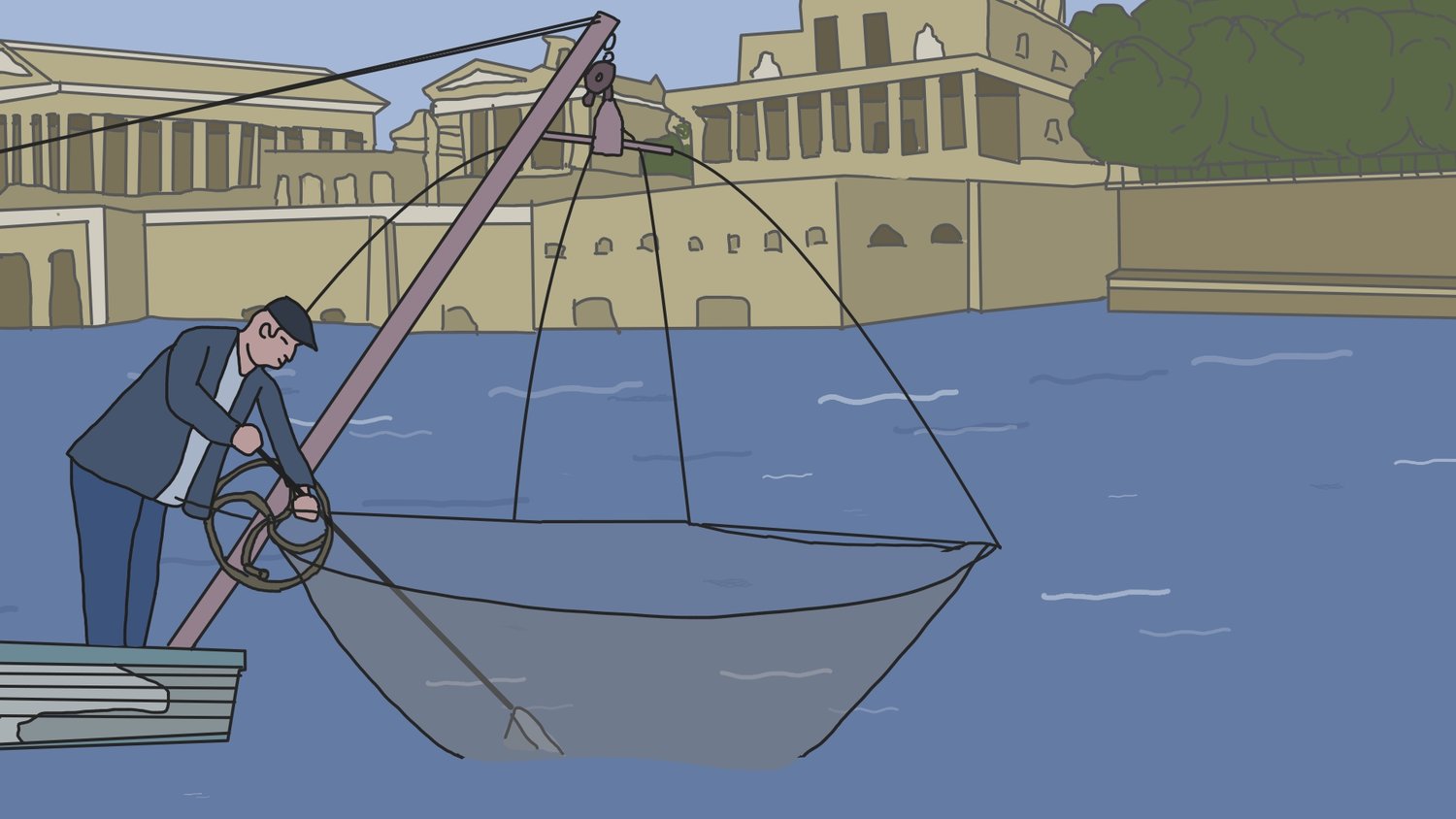Floating Archives on the River on three Saturdays in September
September 3, 2018
Floating Archives – a major floating public art installation by artist Jacob Rivkin in partnership with the Penn Program in Environmental Humanities – offers moving, animated projections of historic river images, displayed on a screen suspended between canoes and paddled up the tidal river. On three Saturday evenings in late summer—September 8, 6:30PM – 10:00PM, September 15, 6:00PM – 9:30PM, and September 22, 5:30PM – 9:00PM (rain dates are Sunday 9/9, 9/16, and 9/23)—Floating Archives will journey from the public dock at Bartram’s Garden to the end of the tidal Schuylkill, at the dam near the Fairmount Water Works. From the river’s banks or its bridges, viewers and passersby can observe these floating silent images. They offer traces of the past in vibrant color, and they invite us today to see still other rivers, as they were, as they are, and as they could be, in the words of past Schuylkill interpreter, John Frederick Lewis.
For the past year as a visual fellow at the Fine Arts Work Center in Provincetown and as the 2018 Mellon PPEH Artist in Residence, during which he also taught in the On-Water Intensive Research Seminar, Rivkin combed the digital archives and collections of the Library Company, the Library of Congress, the Philadelphia Museum of Art, and Temple University. The photographs, etchings, and drawings he’s found provide the basis for hand-drawn illustrations and moving GIFs. Projected on the river in the late summer twilight, they hint at the past histories of labor, industry, and leisure that continue to shape the river today. As Floating Archives moves upriver, its moving images hover over the very spaces they formerly occupied. And their spectral presence can reveal glimpses of what the Schuylkill of the future might look like, suggesting, in a climate-changed and changing city, the human and non-human forces that will shape it.

According to Rivkin, “Floating Archives offers residents of Philadelphia the opportunity to consider the embedded histories in each landscape. Every sidewalk, landmark, and natural feature contains a narrative that turns each location from a space to a place. As the floating platform moves up the Schuylkill River, animations based on archival material are shown in alignment with the locations they reference. The past and present meet for a doubling of both history and landscape.”
Bethany Wiggin, Founding Director of the Penn Program in Environmental Humanities, appreciates how Floating Archives offers a “light touch on sometimes heavy historical materials.” She adds, “for a few years now, PPEH has offered a range of public engagements that seek to interpret the tidal Schuylkill as an unwitting laboratory for centuries-long experiments that range from draining water and ‘reclaiming’ land to energy transitions.” But these long (and ongoing) attempts to shape the relations between land and water can be very hard to present in succinct images. “Rivkin’s work does just this--without a preachy, didactic tone.”
Jacob Rivkin’s sculptures and animations explore how we experience and internalize landscape. He received his BA from Vassar College and MFA from the University of Pennsylvania. His work has been exhibited at the Arlington Arts Center, the Vancouver Art Gallery, the Animation Block Party, the Japan Media Arts Festival, and the National Museum of Australia. It has been written about in the Philadelphia Inquirer and the Washington Post. His awards include a Fulbright Fellowship, a residency at the Hacktory, and a visual arts fellowship at the Fine Arts Work Center. In 2017, he was awarded an Ecotopian Toolmaker grant from PPEH for his project, Bio Pool, with ecological garden designer Eric Blasco. Rivkin currently teaches in the Fine Art department at the University of Pennsylvania.
The Penn Program in Environmental Humanities fosters interdisciplinary environmental collaboration and scholarship at Penn, in Philly, & beyond. Previous artists-in-residence at PPEH include Mary Mattingly, who developed WetLand as a floating lab for experiments in sustainability on the lower, tidal Schuylkill River; and Troy Herion, Mimi Lien, and Dan Rothenberg, whose hybrid musical theater production A Period of Animate Existence was workshopped during their residency before its world premiere headlining Philadelphia’s 2017 Fringe Festival.
